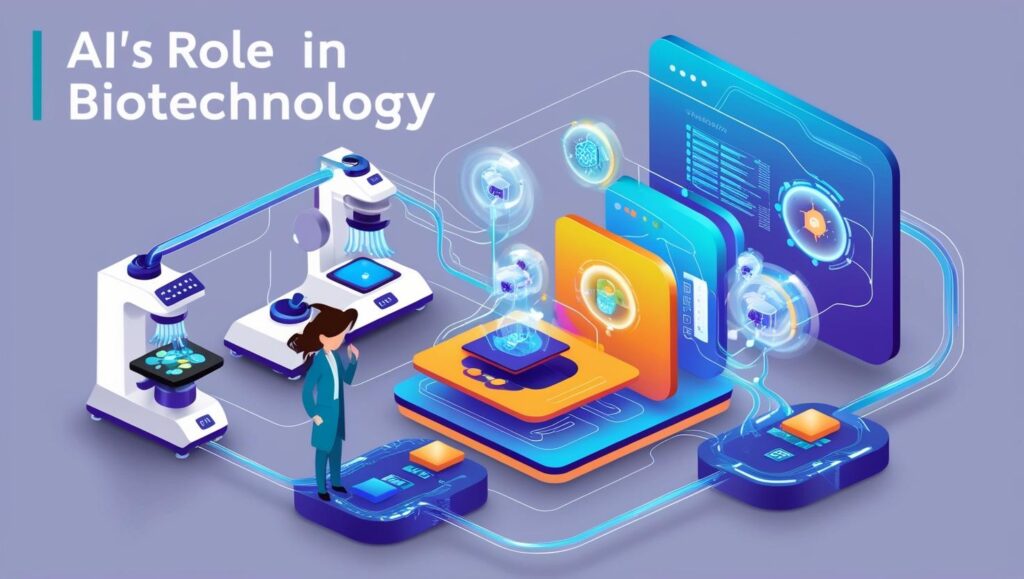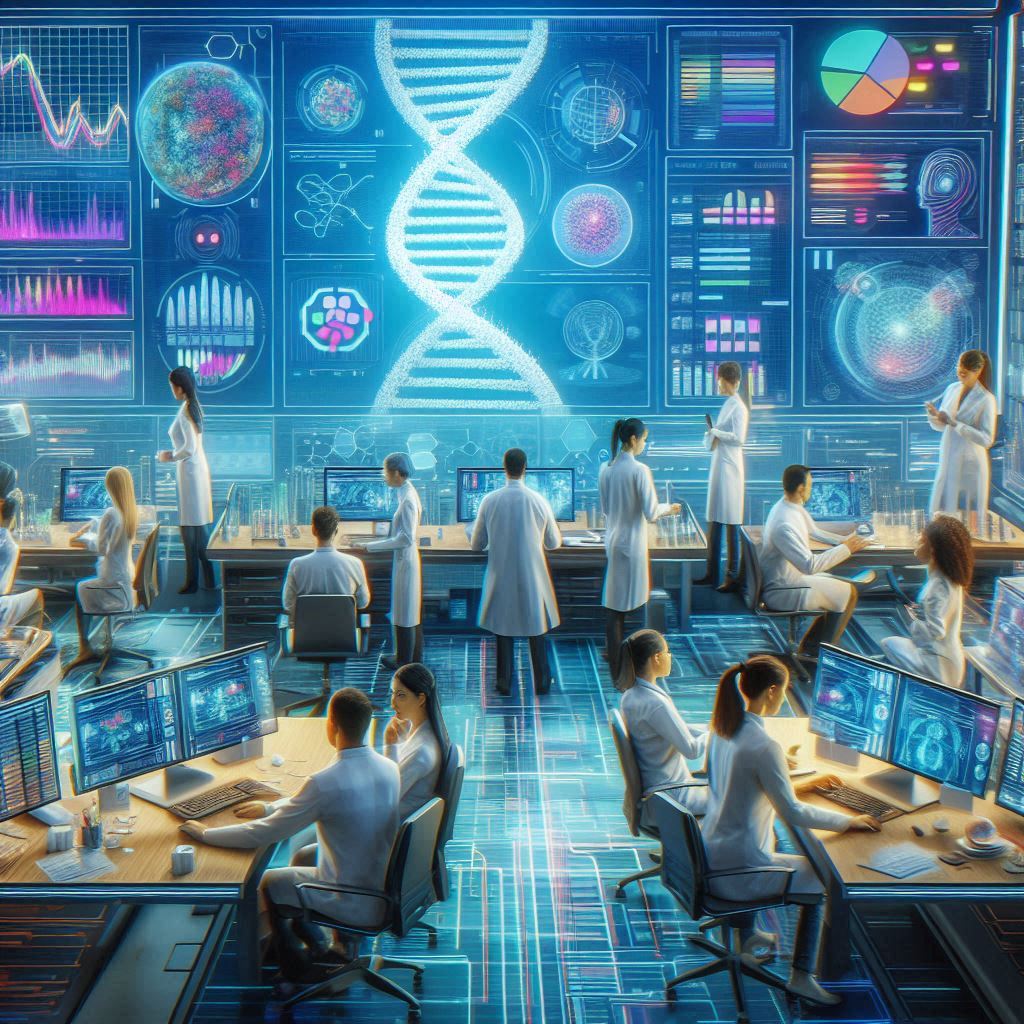
Imagine a world where diseases are predicted and prevented before they even manifest, where new medicines are designed in record time, and where our understanding of the human body is revolutionized. This isn’t science fiction; it’s the promise of artificial intelligence (AI) in biotechnology, and it’s closer than you think.
For years, biotech has been a realm of painstaking research, massive datasets, and slow, expensive breakthroughs. But now, AI is stepping onto the scene, armed with its ability to crunch numbers, identify patterns, and make predictions that would make even the most seasoned scientists raise an eyebrow. Think of it as giving biotech a turbo boost, allowing researchers to navigate the complexities of life at warp speed.
From Lab Bench to Supercomputer: The AI Revolution
So, how exactly is AI shaking things up? Let’s dive in:
- The Hunt for New Drugs, Accelerated: Drug discovery, traditionally a long and arduous process, is being transformed by AI. Forget sifting through endless libraries of compounds – AI algorithms can analyze vast databases to pinpoint potential drug candidates with laser-like precision. It’s like having a super-powered treasure map that leads directly to the cure.
- Decoding the Building Blocks of Life: Proteins, the workhorses of our cells, are incredibly complex. AI is helping us understand how they fold, function, and interact, opening up new avenues for designing targeted therapies and engineering proteins with specific properties. Imagine designing a protein that can hunt down and destroy cancer cells – AI is making that a reality.
- Unlocking the Secrets of Our Genes: The human genome is a vast and intricate landscape, and AI is helping us navigate it with unprecedented clarity. From identifying genetic variations linked to disease to personalizing medicine based on individual genetic profiles, AI is unlocking the secrets hidden within our DNA.
- Biomanufacturing, Perfected: Biotech isn’t just about research; it’s also about manufacturing life-saving products. AI is optimizing biomanufacturing processes, ensuring that drugs and therapies are produced efficiently and consistently. Think of it as having a smart factory that constantly learns and adapts to ensure peak performance.
- Synthetic Biology: Building New Life from Scratch: Synthetic biology aims to design and build new biological systems for a variety of applications. AI is helping to design complex genetic circuits, create new enzymes, and even engineer microorganisms to produce biofuels and other valuable products. It’s like having a digital toolbox to build life from the ground up.
Beyond the Hype: Real-World Impact
These aren’t just abstract concepts; AI is already having a real-world impact on healthcare:
- AI-powered diagnostic tools are detecting diseases earlier and more accurately.
- Personalized treatment plans are being developed based on individual genetic profiles.
- New drugs are being discovered and developed faster than ever before.
The Future is Now
AI is no longer a futuristic fantasy; it’s a powerful tool that is revolutionizing biotechnology. As AI continues to evolve, we can expect even more groundbreaking discoveries and transformative applications. From preventing diseases before they start to engineering new life forms, AI is poised to unlock the secrets of life and rewrite the biotech playbook. So, buckle up and get ready for a new era of medical innovation, driven by the power of artificial intelligence.
